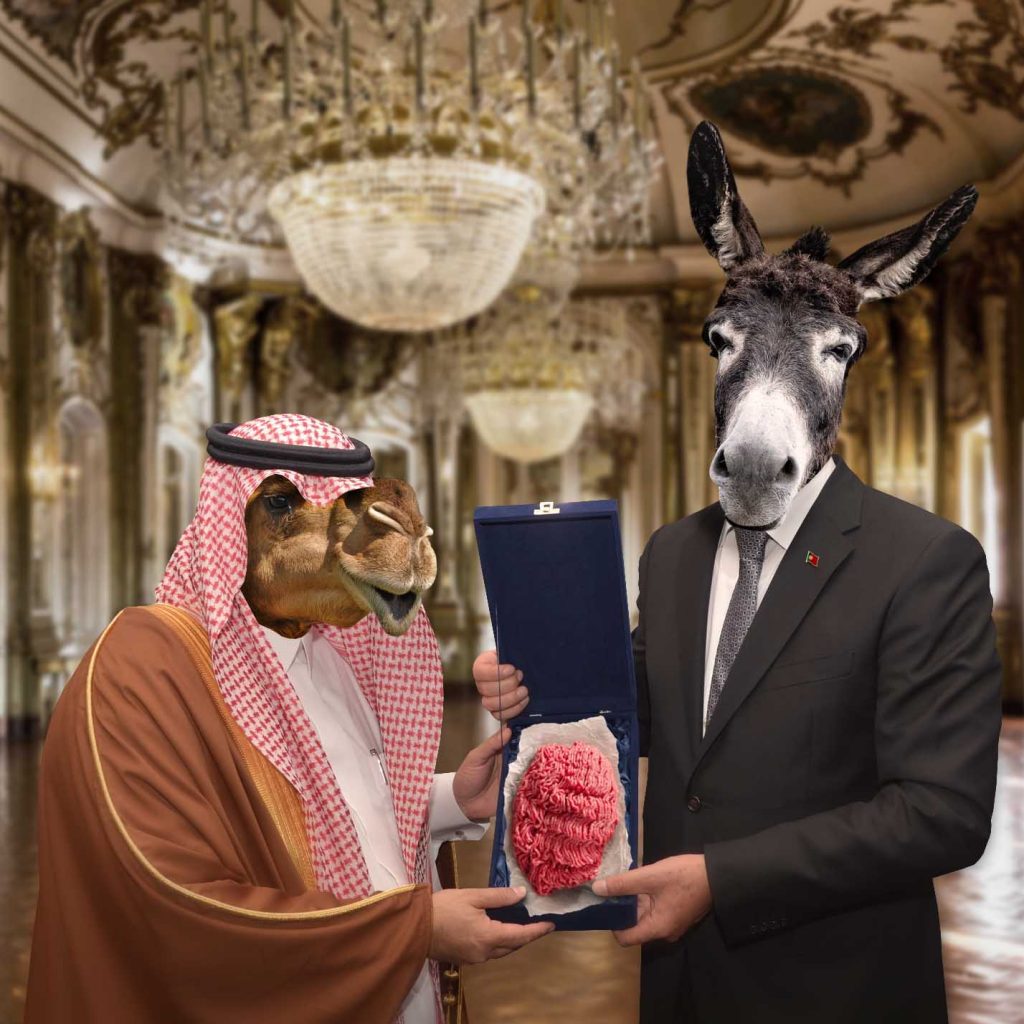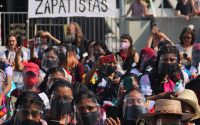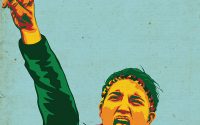How many lives of Yemeni children is a Lusitano horse worth?~ 6 min

By Duarte Guerreiro and Nguyen
The Portuguese Ministry of Foreign Affairs has “vehemently” condemned the recent attack against Aramco installations in the kingdom of Saudi Arabia. The condemnatory text has several interesting details.
Nowhere does it say where the attack came from, despite the Yemeni Air Force taking credit. There aren’t many reasons to doubt it. This attack didn’t come out of nowhere. The YAF had previously carried out numerous drone strikes against the territory and infrastructure of Saudi Arabia and went to the trouble of showcasing its drone fleet, as if saying: let us have peace or next time we will hit you where it hurts. Which is what happened. The reason for this strange omission? Presumably, to leave a blank space so that the United States and Saudi Arabia could fill in “Iran did it”.
In fact, the text, which is part of several documents available for search at the website of the Portuguese Republic, doesn’t even mention that a conflict has been going on since 2015, in which Saudi Arabia is the aggressor against Yemen. The attack presumably fell from the sky, like a meteorite from outer space. It’s not the first time such omissions happen. In 2017, the Portuguese government had already condemned a missile firing from Yemen against the kingdom of Saudi Arabia. Once again without any context, as if the Yemenis were simply the world’s greatest enthusiasts in the field of amateur pyrotechnics.
However, Saudi Arabia is not only the aggressor, it’s also committing genocide.
Yemen’s martyrdom
Back in 2015, unable to obtain a military victory despite its vastly superior resources, Saudi Arabia began a military blockade which left 14.4 million people hungry in 2017. This year, the number of people affected by starvation has increased to 15.9 million people. Also in 2017, a cholera epidemic hit 400 thousand people, weakened by the lack of nutrition or medical care caused by the Saudi blockade. An epidemic that continues to this day. It is estimated to have affected 2 million people.
The official number of those killed by war, hunger and disease is extremely conservative, with humanitarian aid agencies arguing that they don’t have the means to count the victims. If we take into account the fact that the fatality rate for untreated cholera is 50 to 60%, we can easily guarantee that tens of thousands of people have lost their lives. Many of those will have been children, the ones hardest hit by hunger and disease.
It would be too exhaustive to list all the atrocities caused by the Saudi military intervention, but here are some examples: attacking ships carrying refugees, bombing markets, bombing schools, bombing hospitals, among other war crimes. Is this no longer considered “successive attacks (…) on civilian infrastructures”, as lamented by the Foreign Affairs statement when Saudi oil refineries explode?
Where are the Portuguese government condemnations of these atrocities and crimes? It will certainly shock everyone to find out that there are none. In fact, the only document mentioning Yemen is a congratulatory note about the Yemeni government and the Houthi resistance sitting at the negotiating table to reach a peace agreement. Conflict with whom? A mystery. Among themselves? Nowhere is Saudi Arabia mentioned, the main instigator of the conflict. What everyone in Yemen wants the most is peace. They have absolutely nothing to gain from this conflict, unless ejecting your innards through your lower regions until you die is its own reward.
Just like in the conflict between Palestine and Israel, when the victim is attacked, it’s because the aggressor was defending itself. When the victim retaliates, that’s an act of unjustified violence. It’s never the aggressor that must account for itself. Instead, the victim must “sit at the negotiating table” and calmly await its extermination.
But wait. And what do these documents say about Saudi Arabia?
Where’s the beef?
Here we finally uncover the petty interests of the Portuguese State, notwithstanding its usual abject submission to the interests of its North-American “partners”. The first reference to Saudi Arabia in the searchable documents is about the 4th meeting of the mixed Portugal-Saudi Arabia economic commission.
Saudi Arabia appointed its Minister of Commerce and Investment to the task, Majeed Al-Kassabi. Makes sense so far, that is the kind of envoy one expects for an economic conference. Portugal sent… its Defense Minister at the time, José Azaredo Lopes. What is the National Defense Minister doing heading an economic conference that concerned “the investment flows between the two countries and the business and cooperation opportunities in the transportation, infrastructure, urban planing, water, renewable energy, agribusiness, tourism, health and medication sectors”?
Whatever the case might be, the conference provided results. That same day, Saudi Arabia lifted its embargo on Portuguese beef. In 2018, it was sheep and goats. In 2019, at last, horses. For an economy highly dependent on exports, due to the limitations imposed by the Euro, and taking into account its underdevelopment and dependency on agricultural exports, one understands the priority. In 2017, Portugal exported 158 million dollars worth of commodities to Saudi Arabia.
Also in 2017, 11% of the crude oil imported by Portugal came from Saudi Arabia, for a total of 545 million dollars. That constituted 90% of the exports from Saudi Arabia to Portugal, while the remainder was almost exclusively oil derivatives. This crude is then refined in Portugal, creating consumer and exports products much more valuable than the raw material. Refined petroleum alone, not taking other derivatives into account, corresponds to 4.7% of national exports for that same year, a total of 2.8 billion dollars. No wonder the Portuguese State is so concerned with Saudi crude oil production. For such figures, any good manager of capital will be left with no choice but to turn a blind eye to crimes against humanity.
The battlefront
Horsing around aside, the reality of war in Yemen; or, better yet, in Yemen and Saudi Arabia, has changed during the last year. After years of attacks by the coalition headed by Saudi Arabia, the Houthis are taking the offensive. Already in 2015, Houthis had started to attack territories in southern Saudi Arabia. The scale and consequence of those attacks has only intensified, with the Houthis controlling territories in Asir, Jizan and Najran. In 2019, Iran officially declared its support of the Houthi government. Bombings of Saudi positions inside the kingdom have also intensified. All of this by a military force with no conventional air force.
The attacks against two Aramco installations must also be noted, as well as the bombing of Saudi military airports and attacks on Saudi oil pipelines and tankers. One of the richest countries in the world is being humiliated by one of the poorest.
That must be something giving the Portuguese government sleepless nights. Without deep pocketed Saudis, to where will we export our Rocinantes?




